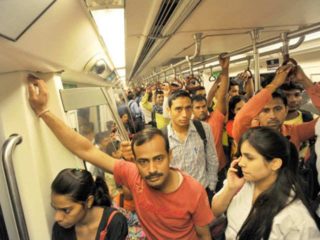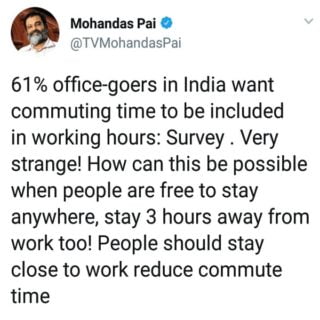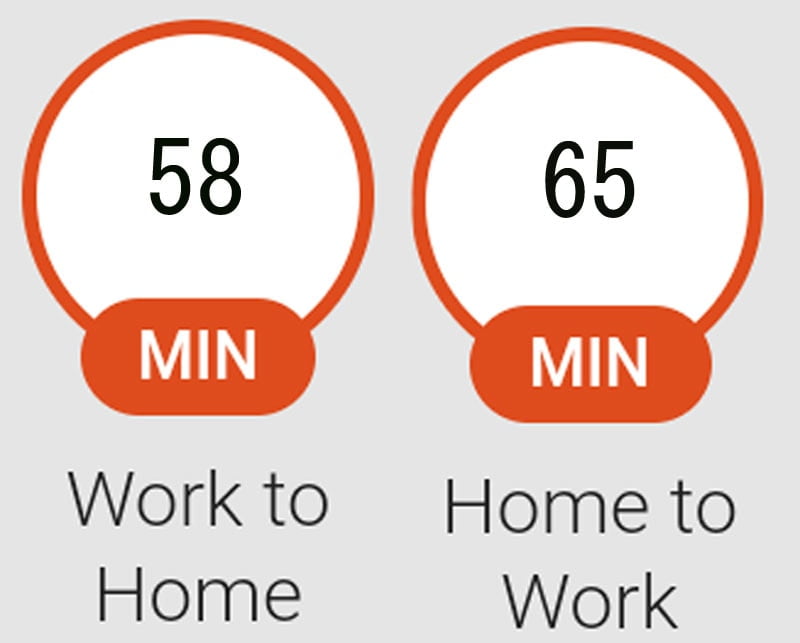Many of us have to travel long distances to get to our workplaces. Thanks to widespread use of smartphones; commuters are regularly using their travel time to deal with work emails and other tasks.
This “travel to work” or the journey from home to a regular place of business, does not constitute as a part of working time in India.
According to a recent IWG Global Workplace survey, 61% of the office goers in India wanted commuting time to be included in the working hours. This would help them to utilize their travel time to deal with work-related issues and maintain work-life balance simultaneously.
Even though the proposition might bring relief in terms of flexible timings to every office goer, there are some genuine loopholes in the aforementioned suggestion.
Loopholes in the proposition
First and foremost, it is important we understand where the employees are coming from.
Many office-goers would prefer using their home to travel work time to deal with emails that had come in, ahead of the working day. While those on their way home would like to catch up on work they hadn’t finished during their regular working hours.
This is because taking work back home tends to create undue stress which affects the person’s work performance and creates an unhealthy work-life balance.
While this proposition looks good on paper, do we have the required supporting infrastructure to kick start a project like this on a wide scale?
We all use different means of transport to get to our workplaces. Taking metropolitan cities into consideration, many people use metros or local trains to get to their workplaces.

It is a Herculean task to get a seat in the metro during rush hours. The prospect of working hassle free on a bus is equally hard to consider.
While most metro platforms in Delhi have free Wi-Fi with good signal strength, underground metros still have poor internet connectivity and weak signals. Therefore, such a work situation can only be considered viable for people commuting via cab services like Ola and Uber.
Also, this type of working demands more surveillance and accountability for productivity.
Even employers will have to consider wider implications of such practices like data security. Furthermore, the devices of employees who intend to work while commuting might have to be equipped with appropriate security in order to protect the client’s data.
Also read: FlippED: Should Women Be Granted Period Leave In Offices? Our Bloggers Fight It Out
Staying close to work
Following this survey, a person took to Twitter to offer suggestions on how to reduce commuting time.

Staying close to the workplace depends upon a variety of factors, mainly financial conditions. In most cases, the rent is directly proportional to the location of the apartments. For instance, societies near IT hubs have exponentially high rents.
Availability of houses in the desired price range continues to be another problem. Therefore, it cannot be considered suitable for every person to stay close to their places of work.
What can be done?
We can start by fixing these glitches in our infrastructure.
Trains and metros should offer a good working environment including fully functioning power sockets, space and good continuous connectivity for internet and phone calls. This can be facilitated by investment from government and telecom industries.
Companies have also started identifying jobs for which physical presence in the office is not required thereby helping the employees to set up home offices. This concept of work from home enhances productivity and tends to cut down on the travel time.
The commute can act as a viable buffer between work and home only if India’s infrastructural and technological positions are strengthened.
Image credits: Google Images
Source: Business Standard, India Today + others
Find the blogger @ashnavig
You’d also like to read:
Should Transgenders Have Separate Bathrooms In India Where Women Still Openly Defecate?





































